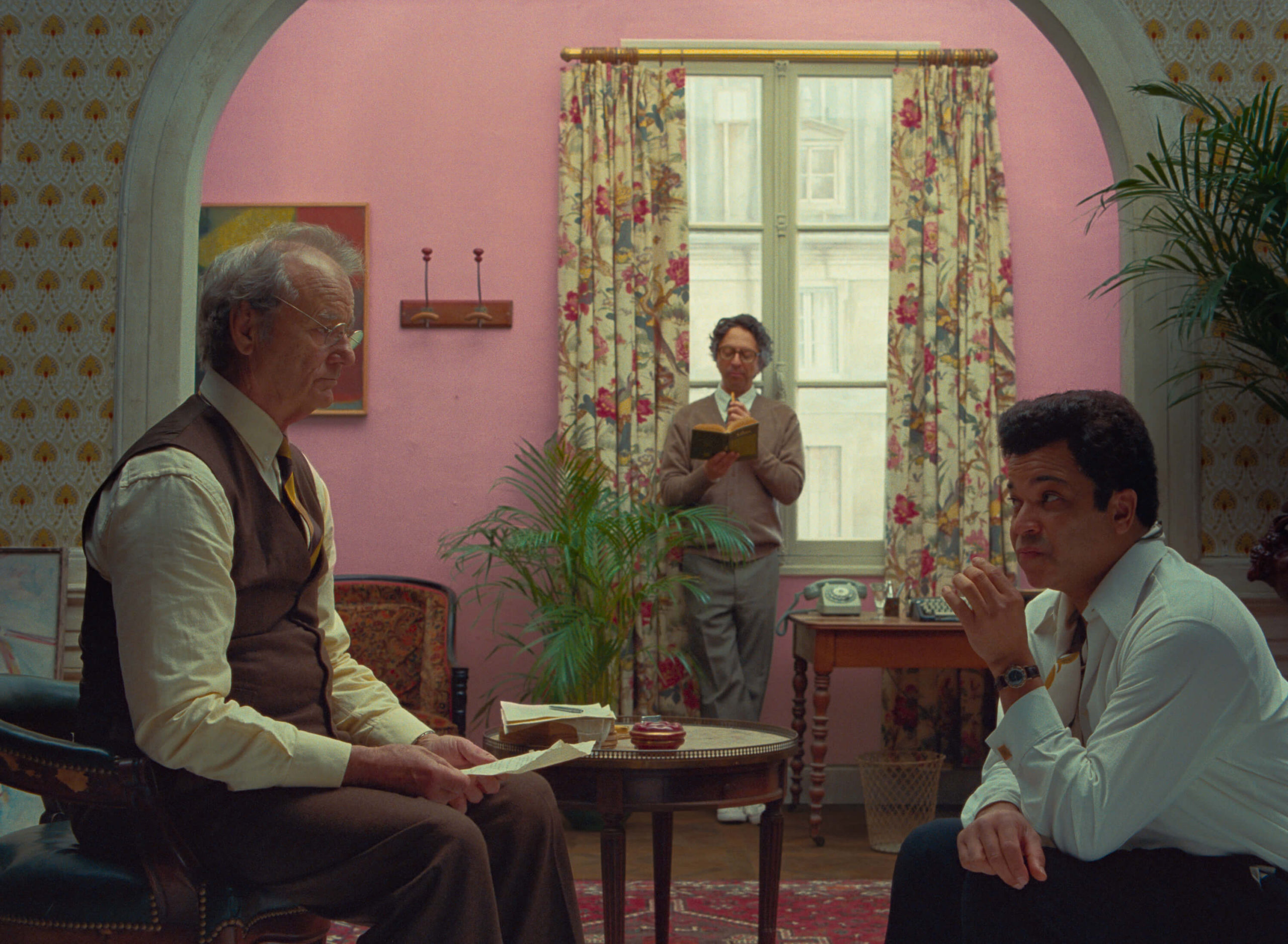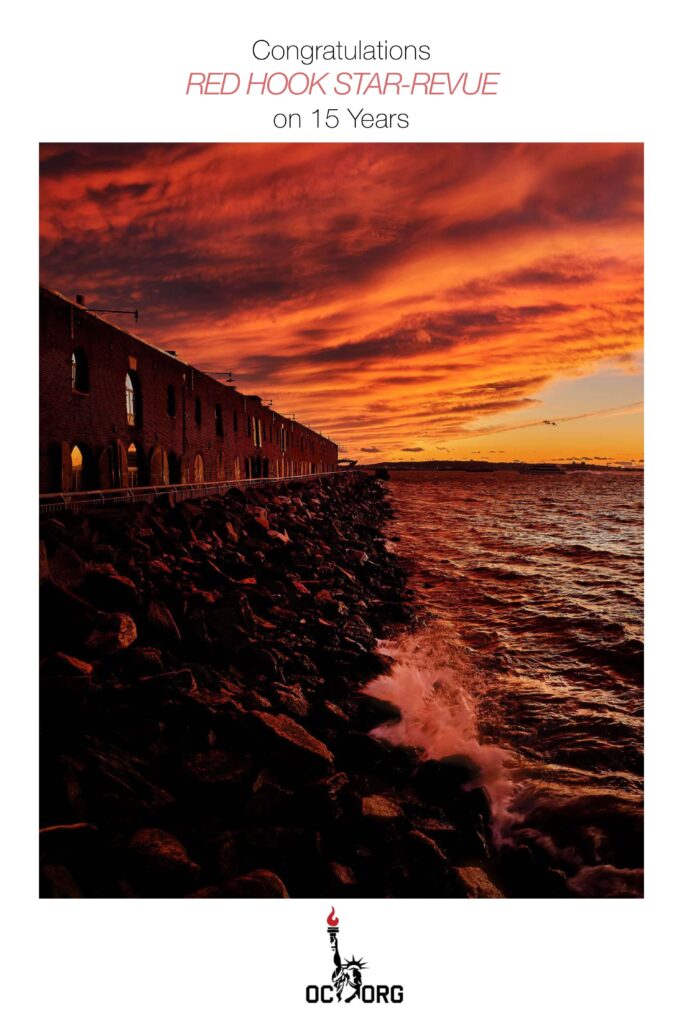There’s a small group of filmmakers whose latest work gets me into a theater no questions asked. Wes Anderson is near the top of that list. Beginning with Rushmore (1998) straight through to Isle of Dogs (2018), even as the films went further and further into a meticulously curated twee formalism (parts of The Grand Budapest Hotel (2014), for instance, feel like a puppet show), getting a new dose of this singular voice’s creativity has been cause for celebration. That Anderson had only made nine films, beginning with Bottle Rocket (1996) through Dogs, adds an air of specialness to the release of a new film. He doesn’t enter the work lightly.
That’s why when the first trailer for The French Dispatch, Anderson’s 10th feature, was released a couple years ago, it was hard to sit still. And not only was it a new Wes Anderson film, but this one centered on a magazine. And Bill Murray is the editor? Take my money!
The pandemic delayed the release of Dispatch for more than a year, but it finally arrived in theaters October 22 to much ballyhoo—especially from the journalism world. Anderson based the titular magazine, located in Ennui-sur-Blasé, France, and run by Arthur Howitzer Jr. (Murray) who oversees a staff of gregarious writers, on Harold Ross, Wallace Shawn, and the early-to-mid-century bylines of The New Yorker.
Crafted as an anthology with Howitzer (and his death) the connective tissue, The French Dispatch is blocked out like a magazine, with each segment representing a section of the publication. There’s the front-of-the-book Talk of the Town-like jaunt through Ennui, an arts piece profiling an avant-garde painter locked up in an asylum for double murder, a report from the 1968 student protests, and an extended culinary feature that becomes a first-hand account of a kidnapping. What’s more, every segment is centered on a writer with a real-life New Yorker antecedent: Herbsaint Sazerac (Owen Wilson) is pre-Joe Gould Joseph Mitchell; J.K.L. Berensen (Tilda Swinton) is Rosamond Bernier, who was profiled by Calvin Tomkins; Lucinda Krementz (Frances McDormand) is Mavis Gallant; and Roebuck Wright (Jeffrey Wright) is a mashup of A.J. Liebling and James Baldwin.
Of course this kind of film would be catnip for journalists. It’s a celebration of the profession at its most vibrant. But Dispatch is also a film for film people. Each segment has its own tonality, driven by the writer at its center, but they also have their own formal rhythm. While the Howitzer-driven framing device is presented in the Anderson-trademark pastry pastel palette, the sections oscillate between color and black and white, as well as frame sizes. In the arts section, for instance, Berensen delivers a lecture about the artist Moses Rosenthaler (Benicio Del Toro), locked away while honing his genius, which is the way into the story. Her scenes are in the kind of high-contrast color, slightly-distorted widescreen common to ‘70s movies; the scenes in the asylum are black and white and square; when a moment of insight occurs within the story, the black and white shifts to color and a slightly wider frame; when something particularly magical happens, the screen becomes vibrantly colorful and fully widescreen.
These kinds of shifts happen throughout the film, to varying degrees of success. In some, Anderson also inserts more artificial touches, such as flat, cardboard-like scenery and sets in the student protest section. In the concluding segment, which finds Roebuck Wright entering a jail to sample the dishes of the prison’s celebrated chef only to be pulled along as the head of the institution’s son is abducted, Anderson ingeniously stages a car chase animated to mimic The Adventures of Tintin. It’s a strange pivot, especially as it’s placed in the middle of a stark noir experience, but it’s wonderful in its execution (far better than that Spielberg movie from 2011) and because it’s so unexpected.
In a film that’s as much a love letter to France as it is The New Yorker, though, perhaps it’s not so unsurprising. Anderson peppers Dispatch with references, homages, and tributes to filmmakers like the Lumière Brothers and Agnès Varda, silent cinema and the French New Wave, and even specific moments from films like Jacques Tati’s Mon Oncle (1958) and Rouben Mamoulian’s Love Me Tonight (1932). These elicit a chuckle from a knowing viewer and often add to the slightly askew vibe that’s a hallmark of Anderson’s films. But they also point to the film’s chief flaw.
Dispatch is fun and whimsical and everything you’d hope for in a Wes Anderson film. He even leans harder into the darker edges he explored in The Grand Budapest Hotel (seeing someone’s fingers chopped off in a door jamb is jarring in any context, but particularly one that’s part of Anderson’s universe). But something feels off.
It’s partly to do with the format being a mismatch for the material. Dispatch seems like a proof-of-concept for a mini-series. At the very least, watching it one segment at a time would allow each some breathing room. Consuming it all in one go does a disservice to the chapters by not allowing us to appreciate them before it’s off to the next adventure. Worse, it makes Dispatch drag.
That’s endemic to all anthology films, I suppose, but what really gnawed at me is the nostalgia — something Anderson hasn’t typically embraced. Budapest Hotel, while set in the past and framed around one man’s memories, is more evocation of the end of the interwar Austria inhabited by author Stefan Zweig. Moonrise Kingdom (2012) takes place in the 1960s, but that’s Anderson doing his version of Francois Truffaut. Indeed, Moonrise Kingdom is Anderson’s New Wave film. It works so beautifully and feels so alive because he’s doing something with the tenets of the style and the era. It doesn’t scream “New Wave!” in your face the way the student riots segment of Dispatch does. Not only is it set in that pivotal year of 1968, Anderson even drops in Chantal Goya’s “Tu M’as Trop Menti, used in Jean-Luc Godard’s Masculin Feminin (1966). Yet the segment — by far the weakest of the group — doesn’t comment on the era or its stylings; it just luxuriates in the backward-glance feelings of it. That’s empty enough, but when held up against Moonrise Kingdom its superficiality is that much starker.
There’s an effervescent quality to most of Anderson’s work, but it never bubbles into frivolity. But that nostalgic impulse, which feels so superfluous these days, pushes The French Dispatch closer to the wrong side of that line than any of his previous films. Perhaps that’s a function of the anthology format, or maybe it just feels that way watching something made before the pandemic, shelved, then released into a different world. When the film is at its best, such as the artist-in-the-asylum segment, it vibrates with a kind of energy, depth, pathos, and irreverence that are the hallmarks of Anderson’s best works. At its worst, it’s toneless and limp.
Much of Dispatch oscillates between those poles. There’s little cohesion, which makes for a frustrating experience. And there’s not enough Bill Murray (if such a thing even exists). Still, it’s never boring. It might be minor Wes Anderson, but it’s earnest, risky, and confident. I will always take that over the latest Marvel episode or whatever franchise flick is being shoved down our throats this week by a cynical, conservative, needy Hollywood.
Author
Discover more from Red Hook Star-Revue
Subscribe to get the latest posts sent to your email.










